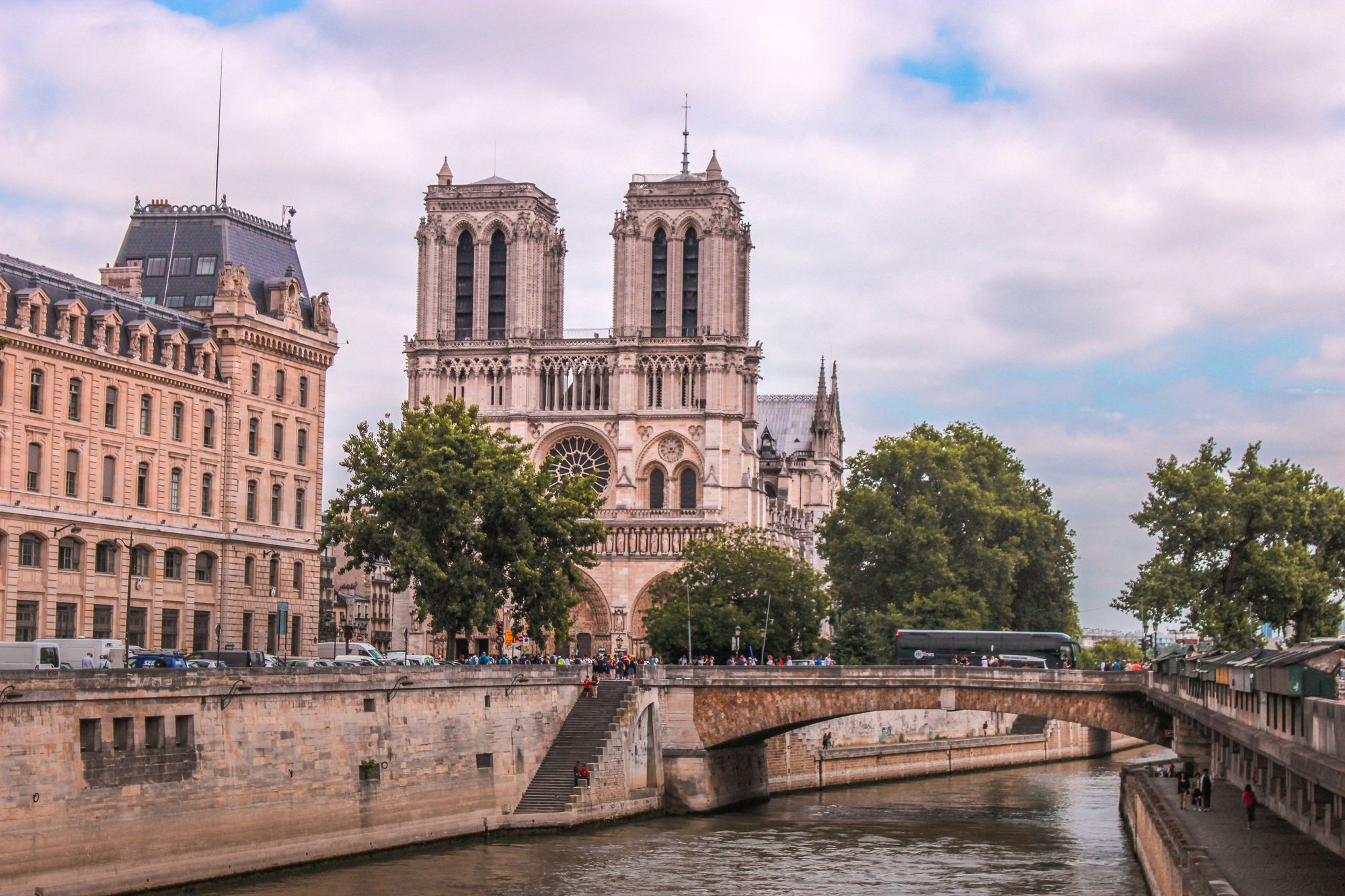Third Sunday in Ordinary Time - Fr. Pete Iorio
January 28, 2024 - 8:30 AM
Audio Recording
On April 15, 2019, the world watched as an iconic Catholic cathedral built in the 1200s went up in flames. Notre Dame of Paris is still under reconstruction and not opened to the public.
In the Middle Ages, at the time the cathedral of Notre Dame was built, most people were illiterate, and so they taught the faith through images… Beautiful stained-glass windows, statues, and paintings. One thing I recently learned about Notre Dame is that there is on its façade a teaching, which is not the good news of Jesus Christ and which the Church now rejects.
There are two statues flanking the front doors of the cathedral. Both are depictions of women, and they are meant to represent a teaching at the time it was built. On the left of the main door is a statue of a woman who is beautiful and is wearing a crown and holding a staff in one hand, and a chalice in the other. Her name is Ecclesia, which of course means “church” in Latin. On the right side of the main doors is the statue of a woman, named Synagoga. (A synagogue is the place where Jews pray.) She does not stand erect and her crown has fallen to the ground. Her head is wrapped in a serpent with the body of the snake covering her eyes. In one hand is a broken staff, and in the other are the tablets of the 10 Commandments hanging down. This represents a very false teaching, called supersessionism. It said that the new covenant in Jesus Christ had totally replaced the covenant that God established with the Jewish people. Also called “replacement theology,” this ideology has sadly been held throughout much of our Christian history. Because of this teaching, as well as some horrific writings of some people we call saints, much violence has been done to our Jewish brothers and sisters.
Winston Churchill said, “Those that fail to learn from history are doomed to repeat it.”
In the gospel today, Jesus is in a synagogue because he was a faithful Jew. He was not the first Christian. And we know that he went beyond the boundaries of his own people and religion, in order to acknowledge all as his brothers and sisters.
Jesus cast out an unclean spirit. We can understand “unclean spirit” in a broader biblical sense, as everything that is in opposition to God. We can say that the unclean spirit is anything that destroys the harmony and unity between God and his creation. Jesus has authority over all these unclean spirits and they obey him.
Today, we can think of the many unclean spirits we encounter every day. There is ambition that allows competition and revenge. There is the desire to have as much as possible, without considering the dignity of others, nor the sanctity of planet Earth. There is aggressiveness that dictates the behavior not only of individuals, but of nations. There is exclusive attention to one's own problems that results in the neglect of the poor. There is racism that allows contempt for people of another race or religion. These “unclean spirits” can certainly find a place within us. We need to cast them out of ourselves when we find them there.
The Catholic Church today is a lot different than it was 800 years ago when Notre Dame Cathedral was constructed. The Vatican II document Nostra Aetate from 1965, says, “In her task of promoting unity and love among men, indeed among nations, [the Catholic Church] considers above all in this declaration what men have in common and what draws them to fellowship.” The declaration affirmed that “The Catholic Church rejects nothing which is true and holy in these religions.” In an effort to cast out the unclean spirit of supersessionism, Pope St. John Paul II went to Jerusalem in 2000, and prayed at the only remaining part left of what was the great temple that was in existence at the time of Jesus. It is called the western wall or the wailing wall. He stuck a paper with this prayer into the cracks of the wall.
God of our fathers, you chose Abraham and his descendants to bring your Name to the Nations: we are deeply saddened by the behaviour of those
who in the course of history have caused these children of yours to suffer,
and asking your forgiveness we wish to commit ourselves to genuine brotherhoodwith the people of the Covenant.
Here in our place of worship, we can learn values, attitudes and behaviors that are in accordance with the mind of God. We can understand that we are all brothers and sisters; that we share the same planet that is sacred; that war and violence are not the solutions to conflicts; that there are no superior and inferior races; that we all have the right to peace and security; and most of all, that there is no person who is not loved by God.
